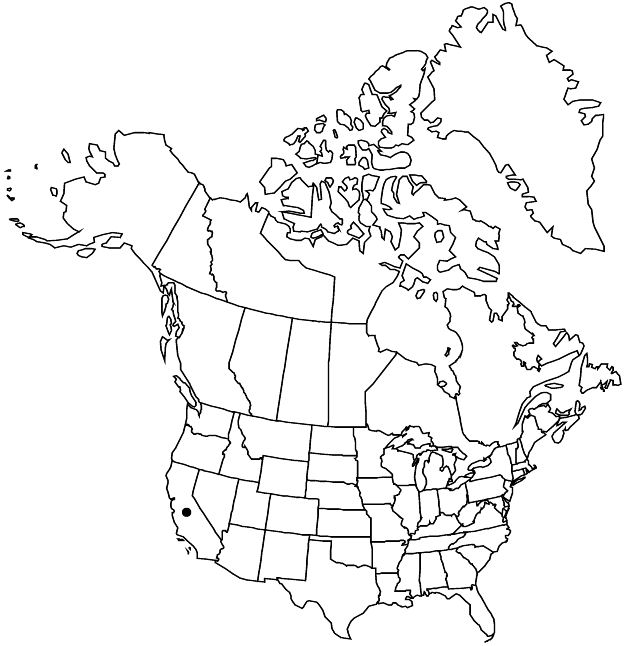Hesperolinon didymocarpum
Univ. Calif. Publ. Bot. 32: 302, figs. 11h, 15a, 17a, 18b, 20. 1961.
Herbs, 10–30 cm, glabrous except microscopically puberulent on stems distal to nodes; branches from short main axis, alternate, spreading. Leaves alternate; stipular glands present on proximal nodes; blade threadlike to linear, 10–20(–30) × 1–1.5 mm, base flat, not clasping, margins eglandular. Inflorescences: cymes dichasial, open, internodes long, flowers widely scattered; bract margins eglandular. Pedicels (2–)5–8(–15) mm, 20+ mm in fruit, spreading at 45–90° angle, not reflexed or bent at apex. Flowers: sepals spreading, lanceolate, 2–3 mm, ± equal, marginal glands minute or absent, surfaces glabrous; petals horizontally spreading, white or light pink or pink to deep purplish pink and streaked with light or deeper pink, veins white, oblanceolate to obovate or nearly oval, 2.5–3(–4) mm, apex notched; cup white, rim lobed between petal attachment and filaments; stamens exserted; filaments 2.5–3 mm; anthers white to deep purplish pink bordered with white, dehisced anthers 1.2–2 mm; ovary chambers 4; styles 2, white, 2.5–4 mm, exserted.
Phenology: Flowering May–Jun.
Habitat: Chaparral, grasslands, under scattered Pinus sabiniana, serpentine soils.
Elevation: 100–200 m.
Distribution

Calif.
Discussion
Hesperolinon didymocarpum is known only from fewer than ten populations in the Inner North Coast Ranges in Big Canyon Creek, Lake County.
Selected References
None.